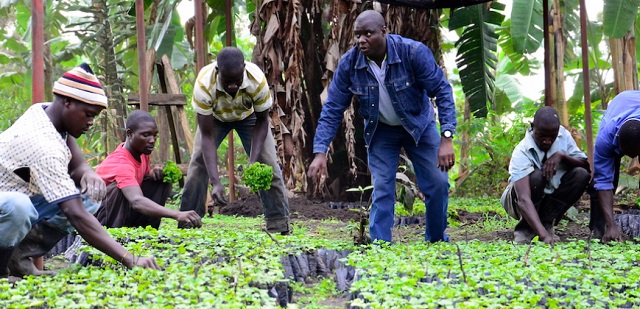
Kampala, Uganda | Julius Businge | The worldwide spread of coronavirus pandemic is exposing opportunities for agriculture sector in schools and beyond, experts in this field say.
Speaking at a virtual meeting organized by Uganda Agribusiness Alliance (UAA) and Agri-Food Systems Education Network on July 3, Victoria Sekitoleko, the former minister for agriculture and an agriculture enthusiast, said that top schools and learning institutions that are practically teaching education to learners have an opportunity to use this COVID-19 break to improve gardens before schools reopen. This, she said will attract learners to the sector when they return but also in future.
“COVID-19 has re-emphasized the importance of agriculture,” Sekitoleko said, “Everyone wants to eat as they stay home.”
The good thing, she said, most corporate individuals have and are investing heavily in the sector’s value-chain – farming, value addition, storage, transportation and marketing. She said that for more of this to happen in future, all children must be taught agriculture in schools.
Robert Mulebeke, a senior lecturer for agriculture at Kyambogo University, said that agriculture teachers must work towards becoming managers for corporate farmers. He also said the idea of having an entrepreneurial mind should be emphasized if the country is to reap more from the sector. He said that the role of agriculture teachers reflects largely in the country’s food and income security. He also emphasized the need for research in agriculture to boost innovations and productivity. Schools and teaching institutions must think of having practical projects in form of dissertations. And that the idea of mentorship and coaching must be emphasized by agriculture teachers.
Agriculture employs over 70% of Uganda’s population and contributes about 25% to its GDP.
The main topic for the zoom meeting was; repositioning agricultural education for youth employment and wealth creation during the COVID-19 era.
 The Independent Uganda: You get the Truth we Pay the Price
The Independent Uganda: You get the Truth we Pay the Price



